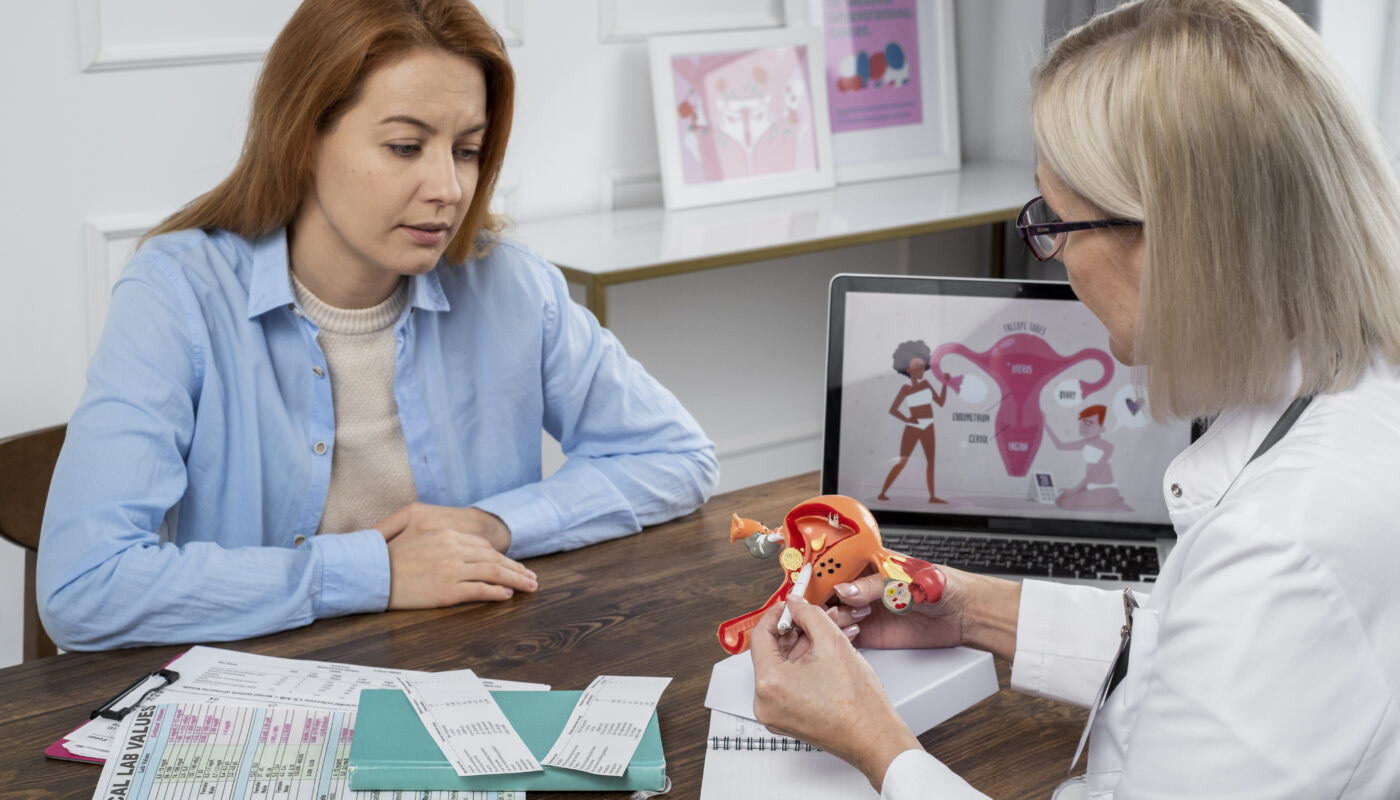Up to 10% of women who are of reproductive age suffer with PCOS, a prevalent hormonal condition. Characterized by irregular menstrual cycles, excess androgen levels, and polycystic ovaries, this condition can lead to a variety of physical and emotional symptoms. One such symptom, menstrual cramping, often goes underappreciated despite its significant impact on quality of life. Recent research has shed new light on how cramping affects women with PCOS and the potential mechanisms behind it, offering new avenues for treatment and management.
Understanding Menstrual Cramping in PCOS
Menstrual cramps, medically known as dysmenorrhea, are a common symptom for many women, but those with PCOS often experience them differently. For women with PCOS, cramping can occur not only during menstruation but also at irregular intervals due to erratic ovulation or the absence of ovulation (anovulation). These cramps may be more intense and prolonged compared to those experienced by women without PCOS.
Key Factors Contributing to Cramping in PCOS:
- Irregular Ovulation:
- In women with PCOS, ovulation is often irregular or absent, leading to hormonal imbalances. This can cause the uterine lining to thicken excessively, resulting in more severe cramping when the body eventually sheds the lining.
- Chronic Inflammation:
- Studies have shown that PCOS is associated with systemic inflammation, which may exacerbate the severity of menstrual cramps. Inflammatory markers such as C-reactive protein (CRP) are often elevated in women with PCOS, correlating with increased pain sensitivity.
- Hormonal Imbalances:
- Elevated levels of androgens (male hormones) and insulin resistance—both hallmarks of PCOS—can contribute to abnormal uterine contractions, leading to heightened cramping.
- Endometrial Abnormalities:
- Research indicates that the endometrium (uterine lining) in women with PCOS may have altered responsiveness to hormones, further contributing to painful periods.
The Impact of Cramping on Quality of Life
Cramping associated with PCOS goes beyond physical discomfort. It often affects multiple aspects of a woman’s life, including:
- Mental Health:
- Chronic pain from cramping can lead to anxiety and depression. Women with PCOS already face higher rates of mental health challenges due to hormonal fluctuations and body image concerns, and severe cramping can exacerbate these issues.
- Work and Productivity:
- Severe menstrual cramps can lead to missed workdays or decreased productivity, as the pain can be debilitating for some women.
- Relationships:
- Physical discomfort and emotional distress caused by cramping can strain personal relationships and social interactions.
New Research Insights
Recent studies have provided deeper insights into the mechanisms and management of cramping in women with PCOS:
- The Role of Prostaglandins:
- Prostaglandins are hormone-like compounds that play a key role in uterine contractions. Women with PCOS may produce higher levels of prostaglandins, leading to more intense cramps. Research is currently exploring how anti-inflammatory diets and medications can help modulate prostaglandin levels.
- Gut Microbiome Connection:
- Emerging evidence suggests that gut health influences inflammation and hormonal regulation. Dysbiosis (an imbalance in gut bacteria) has been linked to PCOS, and improving gut health through probiotics or dietary changes may reduce cramping severity.
- Innovative Treatments:
- Non-invasive treatments like transcutaneous electrical nerve stimulation (TENS) and acupuncture are gaining attention for their ability to relieve pain associated with PCOS-related cramping.
- Hormonal therapies, including oral contraceptives and progesterone treatments, are being refined to address the unique needs of women with PCOS.
- Lifestyle Interventions:
- Weight management and regular exercise have been shown to reduce inflammation and improve hormonal balance, thereby alleviating cramping in women with PCOS.
Practical Tips for Managing Cramping with PCOS
While ongoing research is promising, there are several practical strategies women with PCOS can adopt to manage cramping:
- Adopt an Anti-Inflammatory Diet:
- Focus on whole, nutrient-dense foods like leafy greens, fatty fish, nuts, and seeds.
- Avoid processed foods, sugary snacks, and trans fats, which can exacerbate inflammation.
- Stay Hydrated:
- Drinking enough water helps alleviate cramps and lessen bloating.
- Engage in Regular Physical Activity:
- Activities like yoga, swimming, or walking can improve blood flow and reduce pain.
- Practice Stress Management:
- Techniques such as meditation, deep breathing, and mindfulness can lower stress hormones that may contribute to cramping.
- Consider Heat Therapy:
- Applying a heating pad to the lower abdomen can provide immediate relief from cramps.
- Consult a Healthcare Provider:
- If cramping is severe or persistent, consult a gynecologist or endocrinologist. Depending on your needs, they might suggest drugs or treatments.
When to Seek Medical Attention
While cramping is a common symptom of PCOS, certain signs warrant medical evaluation:
- Severe pain that does not improve with over-the-counter pain relievers or home remedies.
- Cramping accompanied by heavy bleeding or large clots.
- Persistent pain that disrupts daily activities or sleep.
- symptoms of an infection, including fever or strange discharge.
Conclusion
Cramping is a significant yet often overlooked aspect of living with PCOS. Understanding the underlying mechanisms, such as hormonal imbalances, inflammation, and prostaglandin activity, can help women better manage this symptom. New research continues to uncover innovative treatments and strategies, offering hope for improved quality of life. By combining medical interventions with lifestyle changes, women with PCOS can take proactive steps to reduce the impact of cramping and reclaim their well-being.



